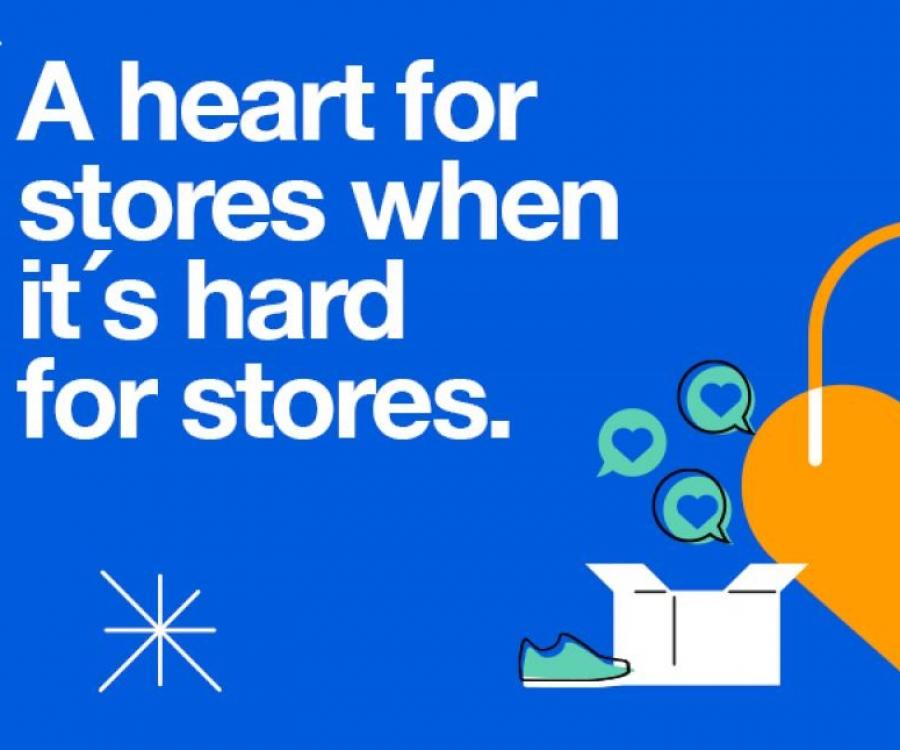
Whether it is via live chats with real employees or artificially intelligent search functions such as IBM’s Watson. The only thing that’s important here is to answer customer requests as fast and easily as possible.
You are probably familiar with the story of Sherlock Holmes and Dr. Watson. Regardless of the version – book or movie – set in Victorian London or modern New York. Both of these characters created by the author Sir Arthur Conan Doyle complement each other well in their skills and use this to solve the most difficult of cases: nobody beats Sherlock Holmes when it comes to intelligence, instinct, and deduction skills. But what he often lacks is empathy and emotion. That’s why he has Watson there to help him out.
But what does all of this have to do with the retail industry? Actually online shopping is also a form of investigation and the search for the best solution. If they are able to answer customer questions in an individualized and prompt manner, online shops and customer service are able to reach the highest sales volumes.
There are many different ways to do this. In a pilot project for a portion of its merchandise, ”The North Face“ for example currently offers customers the chance to launch a search in complete sentences on its website. A conventional search engine could not handle statements like, “I am going to travel to New York in January and need the right coat for it“. But the system that is actually able to provide the right search result is called Watson, a solution by IBM. And even though Sir Arthur Conan Doyle’s character was not the inspiration for its name but rather a co-founder of IBM, the tool combines incredible knowledge from countless sources and the contents it is fed with and the ability to carry out a semantic search – much like Sherlock and Watson.
”At ’The North Face‘, Watson is programmed and fed with background knowledge that’s relevant for choosing a coat – Watson keeps asking questions about everything from geographic to weather related characteristics, to all the available information from the online store pertaining to the product group coat until it has identified the perfect coat for the customer,“ explains Markus Groß, Cognitive Solutions Sales at IBM Deutschland.
Watson is not able to accomplish this in one hundred percent of cases entered by the customer into the search box, but the results are still quite impressive. And besides, is also more fun than conventional search functions on the website. As a so-called “cognitive” solution, the objective of Watson, especially in the retail sector, is actually to assist in purchase decisions by analyzing as much information as possible.
”Watson could actually become especially valuable in customer service,” adds Groß. And indeed, by being able to infer emotions of customers based on the inflection, this feature could assist retailers in meeting the increasing customer expectations of ever faster and effective service in the mobile age.

Making customer service more interactive and faster with WhatsApp, Facebook and chat functions
It’s not only artificially intelligent solutions with semantic search function like Watson that can help to satisfy these kinds of customer wishes. Other solutions that match the customer behavior can also pick up the pace in this area.
Like interactive chat solutions for social media channels for example that are now also increasingly utilized by companies for customer contact. ”Interactivity is becoming more and more important. Customers want direct and personal customer service with live interactions, video chats, and communication via Facebook and WhatsApp,“ explains Hannes Meine, Head of Marketing at optimise.it GmbH, a provider of chat solutions. He adds that providing new options is an opportunity to set yourself apart from the competition and satisfy the target audience that manages everything on mobile devices.
Companies like Saturn and Roller already take advantage of these options. ”The chat channels can be bundled and individually activated for an associate at the customer service center,“ says Meine. He sees several advantages in real-time communication with customers compared to a personal chat. “While you can be on a call with only one customer, you can service up to four customers at the same time in a chat venue. Simple inquiries can be answered extremely quickly.“
The retail industry knows it’s imperative to be present, especially on media like Facebook. ”In the coming years, this will also be one of the most important points to optimize customer service,“ predicts Meine and adds, “The advantages of chat solutions can be measured. Retailers were already able to reduce up to 25 percent of their costs. In other industries, for instance in the energy sector, this already adds up to 35 percent. We estimate that it is even possible to reduce costs by 40 percent.“
What’s more, you can track whether a person you chatted with also made an actual purchase since chat solutions also measure user behavior.
Is a technical solution like Watson able to drive customers away from customer service in the future? ”Certainly not,” believes Meine and adds, “Watson will never have the same kind of understanding of customers like a real person has. Yet these kinds of solutions are becoming increasingly important. And they actually don’t contradict our services. We also have ready-made answers that can be sent in response to specific inquiries for some areas. However, these components have been carefully worded by associates so that the human, individual touch comes through.“
The similarity between Watson and the chat solutions lies in the customer interactivity – either by using the artificial intelligence of Watson or a person by using alternative communication channels. What characterizes both methods is that the customer does not need to adapt to the respective search but rather the system being tailored to the way, a customer asks questions. This can make communication easier while shortening searches and waiting times in call centers.









